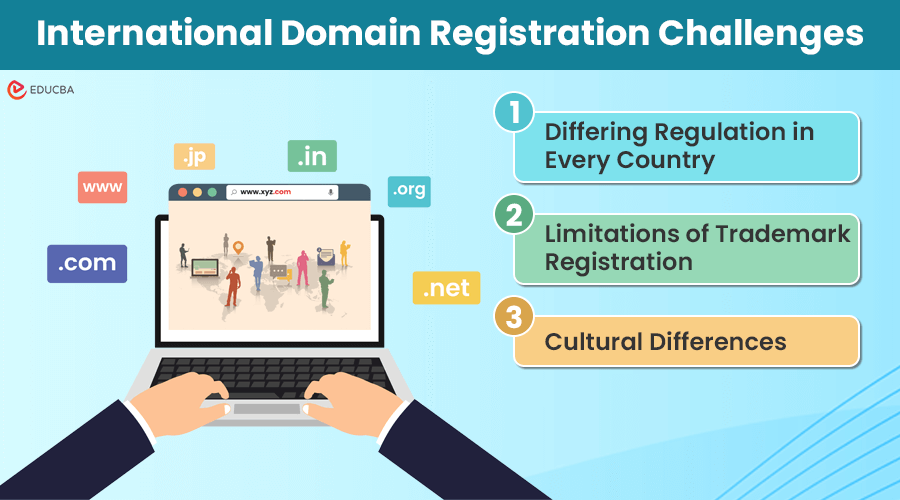International Domain Registration Challenges – Overview
Suppose you have an online store specializing in outdoor gear in the US. With your business prospering domestically, you want to expand internationally to the Australian market. To do that, you will need a website specifically for Australian customers. Here is when you will need to look for international domain registration. However, although expanding your business is an exciting venture, considering international domain registration challenges is equally important.
3 International Domain Registration Challenges (with Solutions)
Let’s start with the most important legal aspect:
Challenge #1 – Differing Regulation in Every Country
Unlike the United States, many countries have specific rules and regulations governing the registration of international domains. For instance, if you want a .co.jp domain, you usually need a business officially registered in Japan. You will also need a physical address and phone number in Japan. Additionally, you can only buy one domain per company, so you can’t grab many of them, all pointing to the same website.
Solution: If you are an e-commerce business based in the U.S. and want a Japanese domain but can’t set up shop there, you have another option. You can use a service like Nominus.com. They act as an intermediary and have a presence in Japan to buy the domain on your behalf.
Challenge #2 – Limitations of Trademark Registration
Holding a trademark in the United States doesn’t mean that you have that trademark in other countries. All trademarks are territorial – they only apply to the country or state in which the trademark registration is done. As a result, you might be unable to use your brand name with a different domain extension in another country.
Solution: To avoid legal issues, check with the country where you want to register your domain. Most countries have trademark offices with online databases where you can search to see if your brand name is already in use. If not, you can register your trademark in that country and buy your domain.
Challenge #3 – Cultural Differences
When expanding globally, be cautious of how your brand name translates into different languages. A classic example is Coca-Cola’s misstep in China; They initially chose characters that sounded like “Coca-Cola” but, when translated, meant “Bite the Wax Tadpole.” Not the image they were going for!
The literal meaning was not only different from the intended branding but also created a negative association, making it unattractive to potential consumers. Thankfully, Coca-Cola recognized the blunder and swiftly rebranded to “Happiness in the Mouth,” saving its reputation and winning over Chinese consumers.
Solution: To avoid these cultural issues, conduct thorough research on linguistic and cultural aspects when expanding the brand globally. Consulting with native speakers and cultural experts can help ensure your brand resonates positively across different languages and regions.
Final Thoughts
Expanding business internationally offers exciting opportunities for growth. But, it also requires careful consideration of the unique challenges in registering and managing international domains. By proactively addressing the above challenges, businesses can successfully expand and establish a strong presence in new markets.
Recommended Articles
We hope this article on International domain Registration Challenges helps you discover optimal solutions for expanding your business. For similar recommendations, check the following links.


